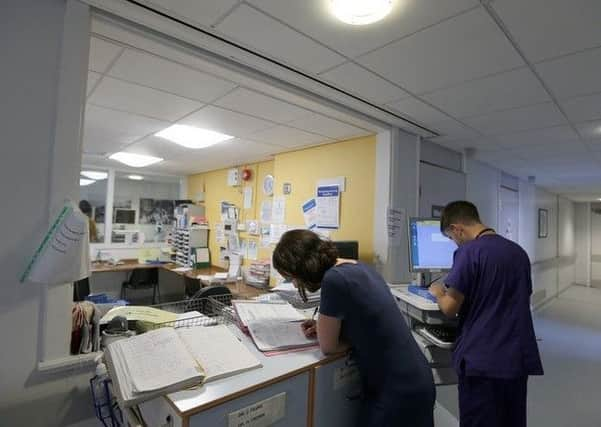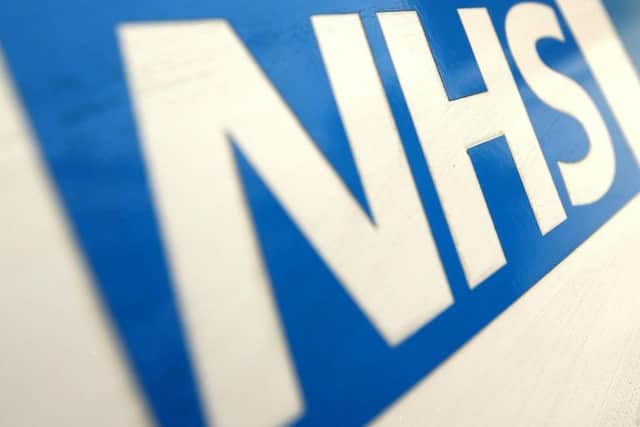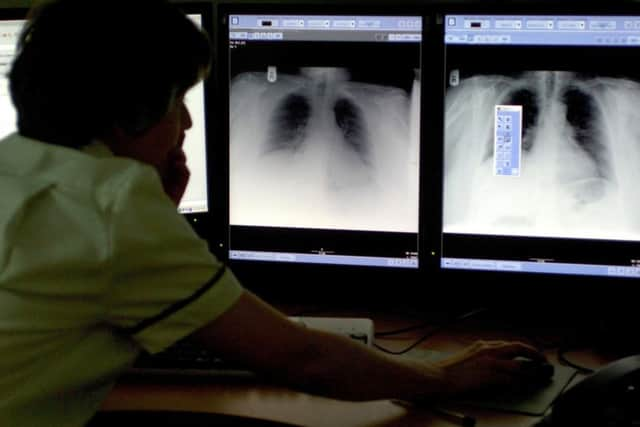Tackle health inequality and watch the North power ahead after the election – Dr Séamus O’Neill


A tale of two Englands, separated by a growing life expectancy gap between the North and the South, and an ever-greater difference in the economic, educational and life-chance opportunities that underpin health.
If this continues, and it has been many years and many administrations in the making, we will see the country as a whole continually underperform and become ever more divided.
Advertisement
Hide AdAdvertisement
Hide Ad

We cannot continue to function as a united country when a prosperous South continues to see disproportionate levels of investment into its transport system, jobs and universities while the North is continually disadvantaged.
Health inequalities have not been discussed in any depth in this election. This omission is important because if the North is to reach its potential to grow a vibrant UK economy, then it needs investment in health and in its underlying contributing factors.
Advertisement
Hide AdAdvertisement
Hide Ad

Poor health is holding back the economy of the North due to lost productivity. The findings of our Health for Wealth report, and the IPPR’s recent State of the North 2019, back this up.
What the entire country loses from this inequality of health across the North is enormous – £13.2bn a year in fact.
Jo Swinson: Yorkshire Parliament will become a reality under Lib Dems While it is true that health inequalities are a national issue and disadvantaged communities in the North have much in common with areas of deprivation elsewhere in the country, the scale is just different. Over half the North has worse health than the worst area in the South: that’s important because the scale and depth of the disadvantage add to a huge economic imbalance.
Advertisement
Hide AdAdvertisement
Hide AdThere is a misconception that this health inequality is a reflection on our care system. It is not really about that. Public Health England figures show that only 20 per cent of our health and wellbeing are attributable to the care system. Though GPs, hospitals and social care are hugely important when needed, our long-term health depends more on social determinants such as whether people have a job, decent housing, good education, active social life and access to exercise and open spaces.
These factors account for 80 per cent of our health and wellbeing and they are economically driven. As for the 20 per cent of our health that is down to our care system, the evidence is that the care system overall in the North is at least as good as the UK average, so that doesn’t explain the gap.
The causes of health inequalities are complex and multi-faceted, and as a result the solutions will need to be as well. The NHSA represents NHS trusts, universities and the Academic Health Science Networks across the North.
Our hospitals and universities are excellent and doing a fantastic job, but hospitals in particular are under-utilised as mechanisms of growth for the North’s economy. They are under-invested in terms of research and training, and because of historical funding issues are unable to put their huge procuring power into the regional economy.
Advertisement
Hide AdAdvertisement
Hide AdFrequently the largest employer in an area of great need, they have huge potential to upskill their local area.
This represents a missed opportunity for government: the chance to support the creation of high-quality jobs, often in partnership with industry in areas of the country where both public and private sector investment are required.
NHSA is building a Northern cluster of expertise to make the case for the North as an investible proposition. The life sciences sector is important, but these arguments apply to other sectors such as transport, the low-carbon economy, data and AI, and addressing challenges in the ageing society through which we should be seeking to grow the North. We, along with our members, are working across all these areas to make this happen.
Devolution, done well, offers an opportunity to tie health into wider societal benefit, which includes economic growth.
Advertisement
Hide AdAdvertisement
Hide AdCome the next election Brexit will be resolved and the many dissatisfied voters will be looking beyond the issue of Europe to see what a government has really done for them. With health inequalities widening between the richest and poorest areas, and with food banks rife in one of the richest countries in the world, any government that ignores this sphere of policy will do so at its peril.
Dr Séamus O’Neill is chief executive of the Northern Health Science Alliance (NHSA).